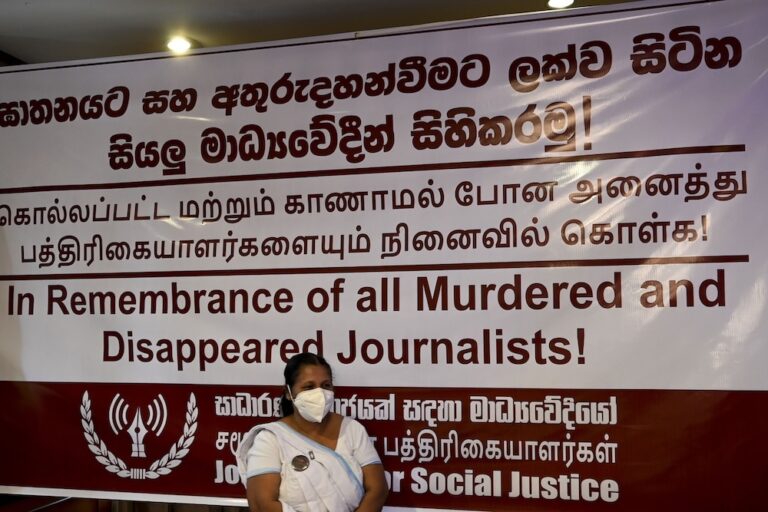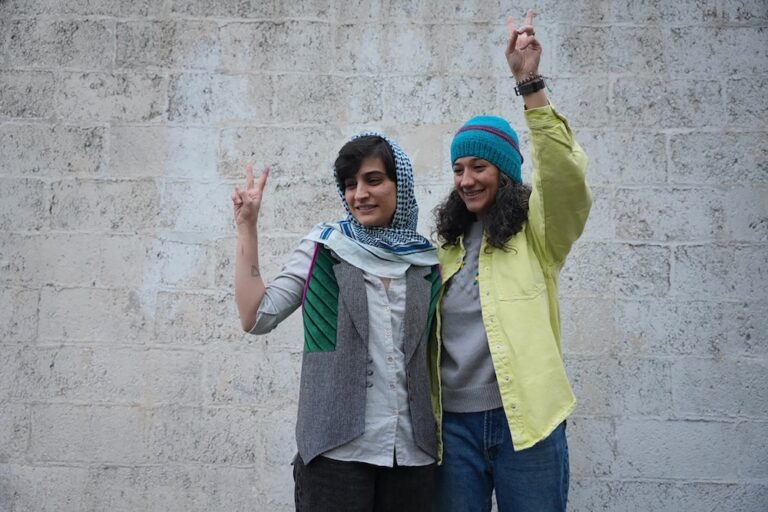(RSF/IFEX) ? Reporters Without Borders has condemned two cases of direct government intervention aimed at influencing the content of independent media – the censorship of TV coverage of demonstrations in support of the newly-dismissed Supreme Court president and the withdrawal of state advertising from the leading independent daily newspaper « Dawn ». « We fear that, in this […]
(RSF/IFEX) ? Reporters Without Borders has condemned two cases of direct government intervention aimed at influencing the content of independent media – the censorship of TV coverage of demonstrations in support of the newly-dismissed Supreme Court president and the withdrawal of state advertising from the leading independent daily newspaper « Dawn ».
« We fear that, in this presidential election year, the independence of the media is going to be under attack from the government, » the press freedom organisation said. « President Pervez Musharraf must immediately stop this kind of authoritarian intervention, which jeopardises the freedom of Pakistani journalists to decide what they cover and how they cover it. Under no circumstances should they be used as propaganda tools. »
The Pakistan Media Regulatory Authority (PEMRA) suspended the broadcasts of two privately-owned television stations – Aaj and Geo TV – for several minutes on 12 March 2007, after they transmitted footage of blood-soaked lawyers who had been beaten by police during a demonstration in support of Supreme Court president Iftikhar Mohammed Chaudhry.
The government fired Chaudhry and placed him under house arrest for abuse of authority on 9 March because of rulings he had issued on cases of political activists who disappeared while in custody.
A journalist working for one of the two TV stations told Reporters Without Borders that the PEMRA had ordered cable and satellite TV operators to black out stations that carried images of the police violence in Islamabad and Lahore. After initially broadcasting this footage, the stations withdrew it from subsequent reports.
« The media are being placed under enormous pressure, » the journalist said, speaking on condition of anonymity. « The government wants all news reports to be in favour of the government. The media nowadays are a reflection of this government pressure. »
Information Minister Muhammad Ali Durrani told Reporters Without Borders: « Under no circumstances did the government ban the media from broadcasting these images. This is a decision of the Supreme Judicial Council. The media are very dear to us and no TV station has been censored. »
Federal justice minister Wazi Safar insulted journalist Ansar Abbasi of the daily newspaper « The News » during a round-table debate on 12 March about Chaudhry’s dismissal, which was broadcast by the Voice of America’s Urdu-language service. « He accused me of blackmail and threatened me without any reason, » Abbasi told Reporters Without Borders. « I intend to take this matter before the courts. »
Published by Pakistan Herald Publications Limited, the daily newspaper « Dawn » is meanwhile trying to cope without state advertising. The newspaper’s lawyers appealed to the high court of the southern state of Sindh on 6 March for the lifting of this sanction. The amount of state advertising placed with this popular, independent newspaper has been cut back drastically since December. The lawyers attribute this to its coverage of the situation in Balochistan.
« To disguise this punitive policy, advertising is placed very occasionally, » the lawyers said in a joint statement. « In reality, even a partial boycott violates the freedom of press guaranteed by article 19 of the constitution. »


